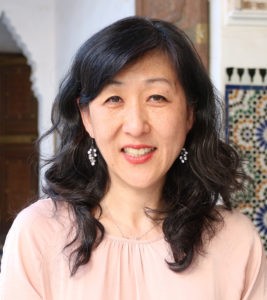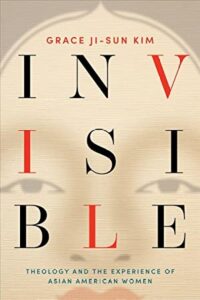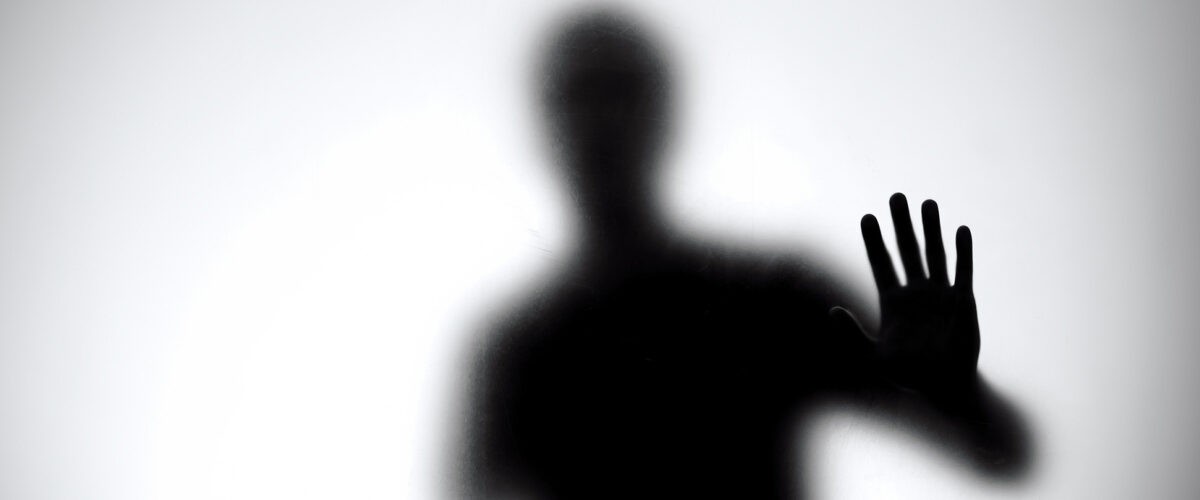My new book, Invisible, came out during the pandemic in November 2021. Since then, I have done numerous presentations and talks on Zoom and podcast interviews as well as a few in-person book talks. One of the most frequent questions I have received is, “Why did you write this book?”
Invisible is the most personal book I have written. Some reviews have called it a memoir. Others have noted that many personal life experiences and stories are included. Both observations contain truth. Invisible combines memoir, theology and history. I have felt the need to write this book for more than a decade.

Grace Ji-Sun Kim
Our family immigrated to Canada in 1975 when I was just 5 years old. Living in the small city of London, Ontario, was not easy for Korean immigrants during the 1970s or ’80s. We were the minority, a marginalized, racialized group in society, and we experienced daily racism in our lives. As a child, I did not know to understand and unpack why people hated Korean immigrants, and thus I just painfully internalized my experiences of racism. I had no one to share and discuss my experiences of racism. It was a heavy burden to carry as a child. As I grew older, I continued to experience racism and I came to realize racism’s evil and understand that it should not be part of our daily existence.
As a theologian who works in liberation theology, feminist theology, constructive theology, and Asian American theology, it became even more crucial to me to write Invisible so I could share my personal experiences as well as the history of Asian Americans’ experiences of racism, discrimination and xenophobia. As I always share in the classes I teach, “Theology is biography and biography is theology.”
We can only come to know God through our experiences in day-to-day living. We come to know God’s revelation, salvation, love, grace and peace through our daily living and experiences. I have come to know God through these difficult experiences in my life and it became important to share my life journey so that we can work toward eliminating racism from society and in the church.
To do so — to eliminate racism in our society and churches — we need to name it and understand how it is systemic and embedded into the very fabric, culture, history and society in North America.
Not naming racism, discrimination and xenophobia against Asian Americans minimizes our painful experiences of oppression and undermines our existence as Asian Americans who are marginalized and subjugated. For example. we cannot ignore the violent hate crimes and racism toward Asian Americans, for if we do, then this continues to make Asians and Asian Americans invisible in society.
“It doesn’t matter if our great grandparents were born in America, our features are still Asian, and we look different from the dominant white society, and therefore we are categorized as foreigners.”
Asian Americans have been labeled as “perpetual foreigners.” It doesn’t matter if our great grandparents were born in America, our features are still Asian, and we look different from the dominant white society, and therefore we are categorized as foreigners. A white European could have immigrated last month, but they are welcomed as an American while Asian Americans are not accepted as Americans.
We are often asked, “Where are you from?” which implies that we are “not from here” and therefore cannot be American. This leads to continuous marginalization and oppression, which results in racialized comments like, “Go back home!” and in hate crimes against Asian Americans who are considered “the other.”
Asian Americans were first labeled as the “model minority” by white sociologist William Peterson in his Jan. 9, 1966, New York Times Magazine article about the success of Japanese Americans in comparison to other minority groups. This model minority myth has had devastating effect on communities of color. Asian Americans are viewed as model minorities against other people of color, which ends up building tension among people of color and pits Asian Americans against other people of color.
Furthermore, this term minimizes and trivializes our ongoing experiences of racism. White society continues to tell us our experiences of racism is not racism as we are “model minority” or “honorific whites.” These two terms have been used by white society to perpetuate racism and discrimination against Asian Americans without taking responsibility or personal burden to eradicate systemic racism in the dominant white society. Our experiences of racism are diminished or made invisible.
“Our stories are not taught in the education system, colleges and churches.”
Furthermore, Asian Americans are made invisible by society, church and the dominant culture. Our stories are not taught in the education system, colleges and churches. Asian Americans have made great contributions to society in politics, sports, arts, science, medicine and all aspects of society. It is important that everyone knows Asian American history, stories and contributions to the wider society.
As I struggled to overcome Asian Americans’ invisibility in society and in the church, I developed a theology of visibility in my book Invisible. A theology of visibility works to illuminate how to advocate for visibility not just for Asian Americans but all marginalized and oppressed peoples in society.
I use four key Korean terms, ou-ri, han, jeong, and chi to develop a theology of visibility. These terms can help us to make visible and elevate those in society who are otherwise made invisible. In this way, I hope and pray that Invisible will help all readers stand in solidarity with the marginalized, oppressed and invisible members of our society, advocate for justice and equity and fulfill the commandment to love one another.
 Grace Ji-Sun Kim is professor of theology at Earlham School of Religion in Richmond, Ind., and earned a Ph.D. from the University of Toronto. She is an ordained minister in the Presbyterian Church (USA) and the author or editor of 21 books, most recently Spirit Life, Invisible, Reimagining Spirit and Intersectional Theology co-written with Susan M. Shaw. She is the host of Madang podcast on Christian Century.
Grace Ji-Sun Kim is professor of theology at Earlham School of Religion in Richmond, Ind., and earned a Ph.D. from the University of Toronto. She is an ordained minister in the Presbyterian Church (USA) and the author or editor of 21 books, most recently Spirit Life, Invisible, Reimagining Spirit and Intersectional Theology co-written with Susan M. Shaw. She is the host of Madang podcast on Christian Century.
Related articles:
The invisibility of women in the Bible | Opinion by Grace Ji-Sun Kim
Black and Asian refugees fleeing Ukraine face additional barriers, discrimination
Life lessons from speaking with a foreign accent | Opinion by Grace Ji-Sun Kim
Cultural divides: ‘Crazy Rich Asians’ and my experience as an Asian American Christian | Opinion by Shauw Chin Capps


